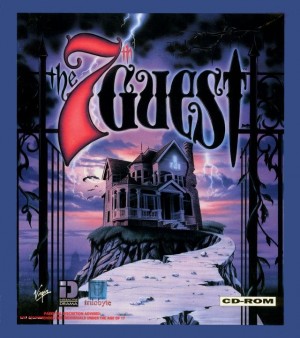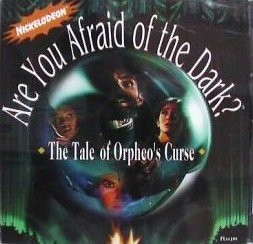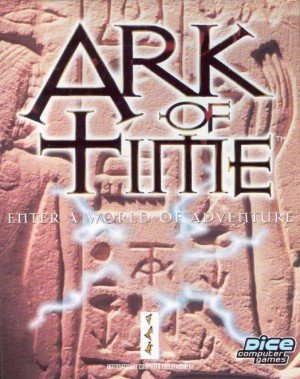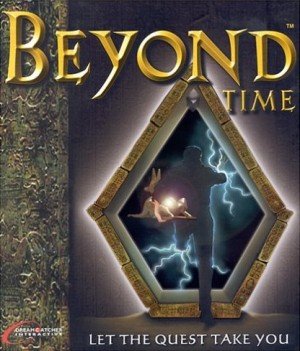Developer Q&As
You've heard some of our thoughts, but who better to talk about the future of adventure gaming than game designers? Here are the thoughts of some of the most important people in the past, present, and future of adventure gaming.
Ken Williams, founder of Sierra On-Line
As the CEO of Sierra, your company was one of the most important in the development of the adventure genre. In the eighties and nineties, the genre, and to much extent Sierra, was the driving force behind the entire computer gaming industry, constantly bringing computer games to new heights. Why do you think that has changed? Why aren't adventure games as important today as they were 15 years ago?
I always thought the phrase “adventure game” limited the genre. The key concept for me was to create a realistic world, and make the player a character within that world. The problem is that most game companies don’t like to “go out on a limb.” They like to produce product in proven categories. Game development sometimes is nothing more than “How about doing a Doom-type game? With a space theme? With a cop theme? Would it look better Command and Conquer style?”
There is a HUGE market for storytelling on a computer. There is NOT a huge market for games that look like games currently on the market.
What is needed to make adventure games relevant to the general gamer? Is it simply better marketing or a 3D interface? Or does the genre have to change in any other way?
If I were developing a storytelling game today, I would focus on the AI side of things. The graphics need to be good--but, the emphasis needs to be on the “suspension of disbelief.” You need to convince the player that the world is real, and that they can make a difference. Too often it just feels like they are trying to solve a graphic puzzle. Focus on the story, the plot, and the characters. Don’t waste the entire budget on “pretty pictures.”
How do you see the future of the adventure game?
I’m cynical about the future. Evolution in the games business seems to have ended. No one seems to want to redefine gaming anymore. It’s like the industry is caught in a rut. Some of this comes from the budgets. Try to imagine a producer saying “I’ve got an idea for something completely different than anyone has seen before. The market is absolutely unproven, and I’m not even sure I can build it, but I’d like $4 million to find out.”
Why do you think that adventure games appeal to people?
Storytelling is the oldest entertainment medium. Telling a story on a computer is no different than telling it in a book, song, poem or film. A well-told story always finds an audience. Adventure games that focus on the story WILL win. That said, designers need to use the power of today’s computers to bring more depth to the story, and NEVER forget my 7 second rule: attention spans are short in an interactive world. If it takes more than 7 seconds to do anything, you’ve lost your audience.
Aaron Loeb, Planet Moon Studios
Have you played adventure games and if so, which ones are your favorites?
The first computer game I ever played was Colossal Cave Adventure, and the first piece of commercial software I ever purchased was Enchanter, from Infocom. So, really, it was adventure games that got me excited about computers in general and computer games in specific. Some of my favorites over the years: Bureaucracy (which I think was one of Douglas Adams’ finest works of anything, period), the Enchanter trilogy, and Grim Fandango.
Graphic adventures seem to be an important part of "Game Design 101," seeing how often they're referenced on conferences and mentioned in game design books. However, the reality is that only a handful of them get made every year. How would you explain this odd situation?
Videogames are a big business now and adventure games, from what I understand (I’ve never seen numbers) really don’t sell very well. If there are maybe a million people worldwide who would be interested in buying a game of that genre, and only 5-10% of them might purchase any one game in particular, it’s very hard to justify the expense of producing such a game (if you can, at best, hope to sell 50 to 100,000 copies).
Seemingly putting the lie to that, two of the biggest selling videogames of all time (Myst and Riven) are adventure games. In general, though, adventure game aficionados don’t think much of those games. So, you have a situation where the only types of adventure games that have proven to be incredibly successful have no core consumer (and are of suspect marketability these days anyway now that everyone’s used to the “multimedia revolution” Myst represented in the early 90s) since adventure gamers aren’t clamoring for the next graphical puzzle game, and where the best works of art produced in the genre (great pieces of interactive storytelling) have no mass appeal because people just aren’t interested in that kind of dedication of their time (or maybe they don’t appeal to the mass market for other reasons; I really don’t know why they don’t sell very well, or even if it’s true that they don’t--that’s just what everyone in the industry says and believes).
But designers talk about them for very good reasons--we played them when we were kids and they convinced us that computers could be used to make incredible stories and game experiences. The question is, how do you take the best parts of adventure games (the fact that they seem to plug right into your imagination, make you part of a story and a world, make you actually feel something about characters) and bring them to modern games for a mass audience? It’s a very interesting and difficult to answer question.
Although Armed & Dangerous is a full-on action game, it seems it's got a lot of story going too. Are there any areas in its design that you could compare with an adventure game? Also, do you think the adventure genre sort of bleeding into other genres, such as action games, represents the "new adventure game"? Or do you expect adventure games to come back as an important genre in its own right?
You’ve really put your finger on it. I think the lessons learned from the adventure game are bleeding into other genres. With Armed & Dangerous, we sought to make characters you really cared about, to make you laugh at the story in a way that action games usually don’t, and to give you a sense of being in a crazy, different world. I think the design lessons of adventure games will continue to appear in games for years to come, and may actually appear more and more. I think it’s the way we, as an industry, will be able to make games that people remember for years to come. After all, you can play a million first-person shooters, but unless they engage you in their story, or their characters, or their sense of style, will you really remember them once you put them down, or will they just be displays of dazzling technology that are forgotten when the next latest-and-greatest piece of technology comes along?
Randy Pitchford, Gearbox Software
Gearbox is probably most known for the PC port of Halo, the highly acclaimed 3D shooter. One of the reasons that Halo has become such a big hit is all the new features and the innovation that has gone into the development of the game. How do you, as a developer of typical action games (Half-Life: Counterstrike, James Bond, Halo, etc.), feel about the adventure game genre today? Do you see adventure games as a game genre that is no longer important to computer gaming?
I love adventure games. I find lots of elements of classic adventure games in many of today’s games. In fact Half-Life and Halo each have puzzles and problems that are reminiscent of the classic adventures. I think that genres are blurry--what matters is entertainment that our customers are interested in. Only a few of us are interested in solving obscure puzzles, but many of us are interested in adventuring! The titles that are regarded as the classic adventure games from publishers like Sierra and LucasArts are very important to any game maker who’s serious about understanding the craft. But, it’s arguable whether enough people are interested in games that are as heavily puzzle-oriented as those are to support today’s development budgets.
The "death" of the adventure genre has been a highly discussed subject in the community. Many reasons have been given for this sudden lack of general interest, such as the enormous popularity of Myst (producing dozens of Myst-clones), multiplayer gaming, and that the developers weren't able to develop the genre further, creatively speaking. Do you have any opinions regarding the "death" of adventures? What do you think is needed to boost the genre back to the top of the sales charts?
I don’t think that the number of people who are interested in playing adventure games shrunk so much as the rest of the industry grew. Classic adventure games are more like a Mensa quiz. They’re fun for a certain percentage of the public to spend their free entertainment hours working on, but the rest of the western world would rather watch Jerry Bruckheimer blow stuff up for two hours. As our customers shifted to be less like us (tinkerers and technology nuts) and just generally a broad cross-section of people, we found that we could make the kind of money that would give us the budgets we need to push things forward artistically, technologically and creatively by making interactive entertainment that appealed to these broad cross sections. In that cross-over, adventure games have simply migrated (or mutated) into new forms. While you won’t see another King’s Quest or Maniac Mansion game be able to top the sales charts any more if they are built as the old ones were, you will see new games like Beyond Good and Evil, Deus Ex: Invisible War and even The Legend of Zelda: Wind Waker make heavy use of the same kinds of puzzles and adventuring that we got so caught up in with the classics.
Ultimately, today’s business of interactive entertainment isn’t about testing reflexes or motor skills any more than it’s about asking folks if they’re capable of working out some clever puzzles we’ve created. Today’s business is about providing fantasy fulfillment. It’s about making a promise to the customer that they’ll be able to experience something in the worlds we create that they can’t get anywhere else. The most popular games today are making the best promises AND they’re fulfilling those promises to the point where customers are talking about them.
The genre of the game or the specific challenges the game offers are irrelevant to the core promise and whether or not the game fulfills the promise.
Ragnar Tørnquist, Funcom
Do you think the game worlds in adventure games as of late have been sufficiently interesting to explore?
I'm not going to comment specifically on other adventure games, but two "recent" games that have featured very interesting, explorable worlds are, surprisingly enough, Grand Theft Auto III and Vice City...and while these aren't adventures (though they've borrowed a whole bunch of elements from the genre), they allow the player to roam freely around a cohesive environment where time passes and where NPCs go about their business. I'd love to see something like this in an adventure game. So, compared to these games, and compared to a lot of RPGs, then no, adventure games don't have worlds as involving and interesting -- but there's no reason they shouldn't have. Shenmue, for example, had a really intriguing and involving game world that felt exotic (to my eyes) and, at the same time, through the eyes of my character, solidly familiar. Because of that--and despite some annoying gameplay--it's one of my all-time favourite adventures.
Large, interesting, beautiful, and cohesive game worlds are rare for a very simple reason: They're incredibly expensive, and very difficult, to make.
How important is non-linearity in adventure games?
Non-linearity in itself shouldn't be a goal (unless it serves the gameplay), albeit giving players the freedom to explore and experiment should be. A good story--and adventure games are *always* about stories!--require a certain degree of linearity, but between the "beats", between the important story moments, it ought to be possible to give players the option to roam free, to explore, to experiment. That might give the appearance of non-linearity, especially if some quests are optional, or if they can be solved "out of order." But when it comes down to it, an adventure game needs a beginning, a middle, and an end--just like any other games (except for MMOs, which basically go on for ever).
Thing is, total non-linearity is probably impossible to achieve, and it's not necessarily something you'd want to achieve.
Do you see character AI play a significant role in adventure games?
It depends what you mean by 'AI'. It's an often misused and ambiguous term. But the illusion of reality, of life, is as important in adventure games as it is elsewhere. To provide NPCs with artificial behaviour that mimics the behaviour of real people is a step forward... but this *can* be accomplished through smart scripting, which is often what people mean when they talk about 'AI'.
However: Yes, absolutely, we need to see characters in adventure games who do more than just stand around waiting for the player to show up and talk to them, and who may react in a more dynamic manner to player actions. This opens up for a lot of new gameplay. I think that players are starting to expect much more from their interactions with NPCs, and developers need to rise to that challenge.
What do you think can adventure games learn from other genres?
A whole lot. Other genres have "stolen" so much from the adventure--object-oriented puzzles, conversations, non-combat gameplay, the unique focus on story--and it's about time the adventure took something back! For instance, GUI and interface is something adventures can learn a lot about from console RPGs, action-adventures, and so on. Environmental navigation, combat, physics, AI... even story and dialogues, areas where adventures used to rule supreme. Now RPGs like Knights of the Old Republic are raising the bar. So, definitely, the adventure genre needs to look elsewhere for inspiration, and not remain stuck in the past. I think Broken Sword 3, for example, has shown a unique willingness to defy expectations and move forward.
Q&As conducted by Eivind Hagerup and Marek Bronstring.













